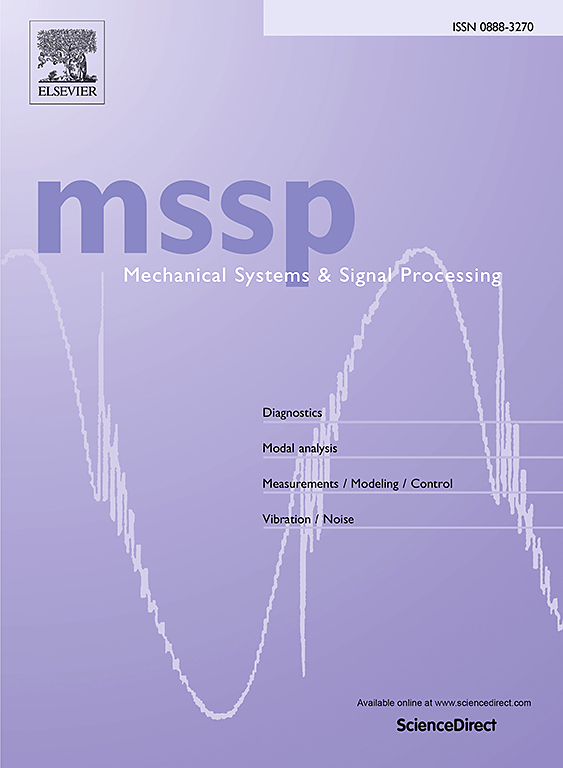Choosing the right signal processing tools for mechanical systems
IF 7.9
1区 工程技术
Q1 ENGINEERING, MECHANICAL
引用次数: 0
Abstract
Simon Braun was one of the first to recognise the special requirements for processing of signals from mechanical systems, which was why he launched the journal Mechanical Systems and Signal Processing. Mechanical engineers are typically not well trained in signal processing, so signal processing specialists are often recruited from other areas, e.g. electrical engineering, speech processing, acoustics, which often have different requirements. A very important application area of signal processing in mechanical engineering (and mechatronics) is robotics and active control. This requires causal processing in real-time, but that places restrictions on the results, since causal filters have poor characteristics and phase distortion. There are also problems with differentiation, integration, and Hilbert transformation when performed directly in the time domain. Machine Condition Monitoring is another very important area of signal processing for mechanical engineers. This paper shows that causal signal processing is not only not required for Machine Condition Monitoring, even for online monitoring of critical machines, but gives problems and distortions that can be avoided with non-causal signal processing. The paper illustrates the advantages gained using non-causal processing, mostly based on FFT (fast Fourier transform) analysis, for ideal filtration with zero phase shift, as well as error-free differentiation/integration and Hilbert transformation via the frequency domain. However, the circularity of the (non-causal) FFT algorithm gives “wraparound effects”, which must be mitigated. The paper has a short discussion of the situations, apart from active control, where causal processing is of advantage, such as octave-based filtration, and real-time zoom as a precursor to FFT analysis. Finally, the paper discusses the special requirements of machine health indicators obtained by signal processing, because unlike structural health monitoring, they are based more on changes in forcing functions, varying greatly between different machines and components, and not just on dynamic (i.e. modal) properties.
求助全文
约1分钟内获得全文
求助全文
来源期刊

Mechanical Systems and Signal Processing
工程技术-工程:机械
CiteScore
14.80
自引率
13.10%
发文量
1183
审稿时长
5.4 months
期刊介绍:
Journal Name: Mechanical Systems and Signal Processing (MSSP)
Interdisciplinary Focus:
Mechanical, Aerospace, and Civil Engineering
Purpose:Reporting scientific advancements of the highest quality
Arising from new techniques in sensing, instrumentation, signal processing, modelling, and control of dynamic systems
 求助内容:
求助内容: 应助结果提醒方式:
应助结果提醒方式:


